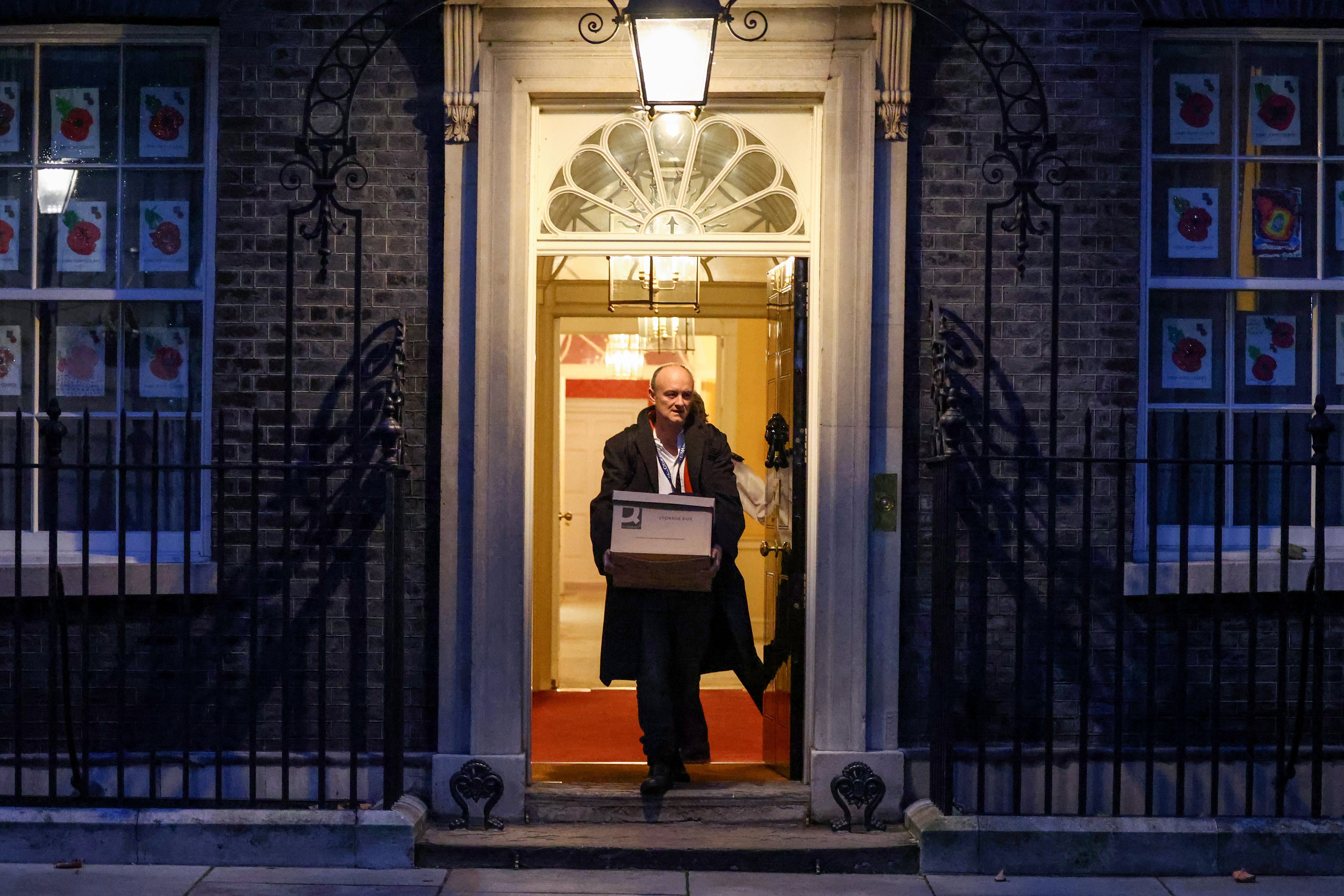What is Dominic Cummings’s case against Boris Johnson?
The prime minister’s former chief adviser has set out the case against his former boss on Twitter – John Rentoul adjudicates


Your support helps us to tell the story
From reproductive rights to climate change to Big Tech, The Independent is on the ground when the story is developing. Whether it's investigating the financials of Elon Musk's pro-Trump PAC or producing our latest documentary, 'The A Word', which shines a light on the American women fighting for reproductive rights, we know how important it is to parse out the facts from the messaging.
At such a critical moment in US history, we need reporters on the ground. Your donation allows us to keep sending journalists to speak to both sides of the story.
The Independent is trusted by Americans across the entire political spectrum. And unlike many other quality news outlets, we choose not to lock Americans out of our reporting and analysis with paywalls. We believe quality journalism should be available to everyone, paid for by those who can afford it.
Your support makes all the difference.Dominic Cummings, the prime minister’s former chief adviser, is up to the 51st tweet in a thread that started a week ago, in which he has laid out much of the case against Boris Johnson that he is expected to make on Wednesday. He is due to appear in front of a joint meeting of the health and science select committees of MPs, to give evidence to their investigation into the handling of the pandemic, which is turning into a dress rehearsal for the public inquiry that will be set up next year.
One of the most serious criticisms Cummings makes is in tweet number 38: “Media generally abysmal on covid but even I’ve been surprised by 1 thing: how many hacks have parroted Hancock’s line that ‘herd immunity wasn’t the plan’ when ‘herd immunity by Sep’ was *literally the official plan in all docs/graphs/meetings* until it was ditched.”
This seems a straightforward confusion about what people mean by “herd immunity was the plan” – a confusion that was never quite cleared up at the time. In the early stages of the pandemic, the government’s scientific advisers assumed that it would not be possible to prevent the virus spreading throughout the population until enough people had acquired immunity to stop it spreading any further – this level was assumed to be something like 60 per cent of the population.
So the initial policy was to try to manage the increase in infections so that the NHS would not be overwhelmed, either immediately or in what was expected to be a winter resurgence. Cummings uses language about herd immunity that seems to imply that the government’s policy, on the advice of the Scientific Advisory Group for Emergencies (Sage), was to deliberately allow the virus to spread. This is surprising, given that he was at the heart of government at the time and even attended some of the Sage meetings. He must know that the aim of the policy was to try to delay what was then thought to be inevitable, which is rather different from having herd immunity as the policy aim.
The valid criticism of Sage might be that it was too slow to realise that it could halt the spread of the virus through drastic changes in people’s behaviour – working from home, preventing travel, and closing down shops and restaurants.
What is striking about Cummings’s tweets is that, if this is his criticism, then it is of Sage rather than of Johnson – who at that early stage followed the scientific advice quite closely. Indeed, by the time we get to tweet number 48, on Sunday afternoon, Cummings is spreading the blame more widely: “Critical as I am of the PM in all sorts of ways, it’s vital to understand the disaster was not just his fault.” In addition, he blames Jenny Harries, the former deputy chief medical officer; Matt Hancock, the health secretary; the Department of Health; and the Cabinet Office.
If Cummings is indeed motivated by revenge for his sacking and wants to damage the prime minister, he has not yet set out a compelling case. But perhaps the Twitter thread is still going, and before 9.30am on Wednesday he will have got up to the period in September last year when Sage was giving Johnson advice with which Cummings agreed – to order a circuit-breaker lockdown – and which the prime minister resisted.
On the other hand, Cummings thinks that if “competent people” had been in charge (and if only there had been a competent person in a position very close to the prime minister, who was able to advise him), there would have been no need for any lockdowns at all (tweet number 37). This kind of sweeping statement hardly enhances the credibility of the case he is about to present to the committee.
Join our commenting forum
Join thought-provoking conversations, follow other Independent readers and see their replies
Comments